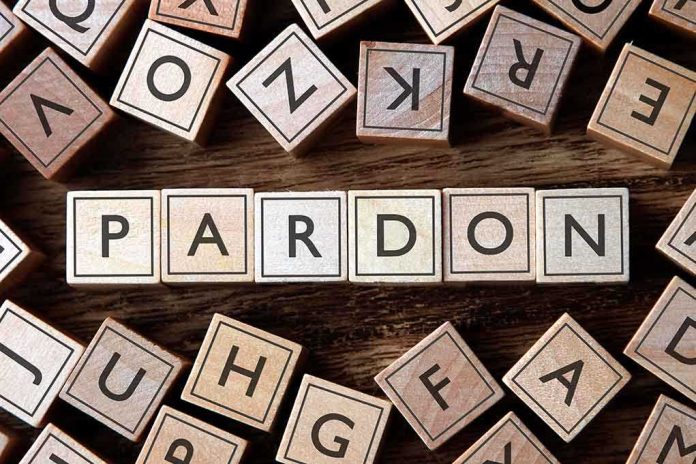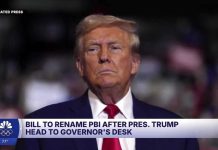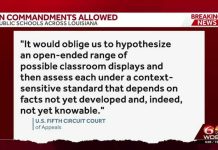
President Trump has issued sweeping pardons to key allies, including Rudy Giuliani and Mark Meadows, accused of trying to overturn the 2020 election, sending a clear message about executive power and political loyalty.
Story Snapshot
- Trump pardoned Rudy Giuliani, Mark Meadows, and several other allies for federal charges tied to efforts to overturn the 2020 election.
- The pardons do not affect ongoing state-level prosecutions, which remain active.
- The move is seen as both a political statement and a legal maneuver, reinforcing Trump’s narrative of a “stolen” election.
- Legal experts note the pardons are limited in scope but set a precedent for future executive clemency in politically charged cases.
- The pardons deepen partisan divides and raise questions about accountability and the limits of presidential power.
Trump’s Pardon Power in Action
On November 10, 2025, President Donald Trump issued pardons to Rudy Giuliani, his former personal attorney, Mark Meadows, his former White House chief of staff, and several other allies. These individuals were accused of involvement in efforts to challenge or overturn the results of the 2020 U.S. presidential election. The pardons apply only to federal charges, not to any state-level prosecutions. This action underscores the limits of presidential pardon power, as it does not affect ongoing or potential state-level cases. The move is widely seen as both a political statement and a legal maneuver, reinforcing Trump’s narrative of a “stolen” election and protecting his loyalists from federal prosecution.
The pardons come amid ongoing legal battles at both federal and state levels, with several Trump allies facing criminal charges for their roles in efforts to overturn the election. The distinction between federal and state charges is crucial, as the pardons do not shield the recipients from state-level prosecution. This limitation means that while federal charges are nullified, state-level cases remain active and unaffected by the pardons. The move is seen as a significant step in Trump’s efforts to protect his inner circle and reinforce his narrative of a “stolen” election.
Legal and Political Implications
The pardons have significant legal and political implications. Short-term, the pardoned individuals avoid federal prosecution, but they remain vulnerable to state-level charges. Long-term, the pardons may set a precedent for future use of executive clemency in politically charged cases and could influence public trust in the justice system. The move deepens partisan divides and may energize both Trump supporters and opponents. Socially, it raises questions about accountability and the limits of presidential power. Economically, the direct impact is minimal, but there could be indirect effects on campaign fundraising and legal expenditures.
Legal analysts note that the pardons are “a big statement without a big practical impact” due to their limitation to federal charges. Political commentators highlight the symbolic nature of the move and its potential to influence future executive actions. Scholars of constitutional law emphasize the distinction between federal and state jurisdiction, and historians compare the pardons to previous controversial uses of executive clemency. Supporters argue the pardons correct perceived injustices and protect political allies, while critics contend they undermine the rule of law and accountability.
Broader Impact and Expert Perspectives
The pardons have broader implications for the legal community and political parties. The legal community debates the scope and ethics of presidential pardons, and political parties may adjust strategies regarding executive clemency. The move is both a political statement and a legal maneuver, with implications for future uses of presidential clemency and ongoing debates about accountability in American democracy. The pardons are legally significant but limited in scope, as they do not affect state-level prosecutions. The distinction between federal and state charges is consistently reported and confirmed by legal experts.
Video: Trump pardons Giuliani, others accused of trying to undo 2020 defeat | REUTERS https://t.co/3AyLWhMhoO #LiveTube
— LiveTube Alerts (@livetubealerts) November 10, 2025
The pardons have been widely reported by major outlets, including CBS News, Reuters, and AP, confirming the issuance of pardons and their federal scope. The move is seen as a significant step in Trump’s efforts to protect his inner circle and reinforce his narrative of a “stolen” election. The pardons deepen partisan divides and raise questions about accountability and the limits of presidential power. The legal and political implications of the pardons will continue to be debated in the coming months.
Sources:
Trump pardons Giuliani, others accused of trying to undo 2020 defeat | REUTERS







